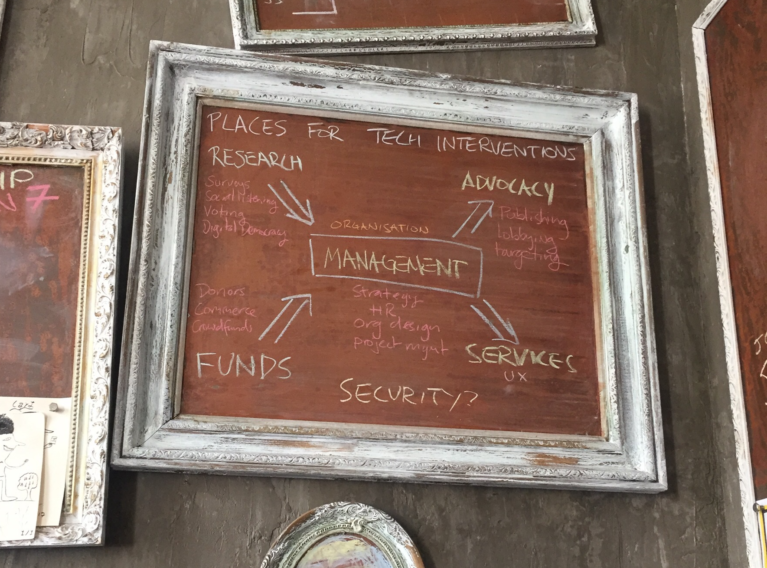(image: noticeboard at Newspeak House)
We have been anticipating the internet’s impact on the political process for over two decades now, with talk of ‘the first internet election’ going back to at least 1997 in the UK, a time when political parties and candidates built their first websites and started emailing supporters in the hope of influencing their voting.
We have come a long way from the first online MP’s surgery, which I ran for Cambridge MP Anne Campbell in 1996, or the mailing list and website archive that constituted the Nexus ‘online think tank’, and it’s clear that we now have what we asked for: it is impossible to disentangle the political process from the network, and all politics seems to have an online dimension, even in countries where net access is limited.
However the consequences are clearly not those that early advocates of networked politics might have hoped for. Far from the network ushering in a new age of deliberative democracy fuelled by active and engaged citizens, online activism has become a tool for those who would undo the Enlightenment’s gains and push pack many of the social changes that have characterised open societies.
